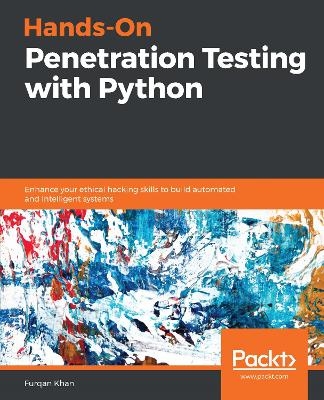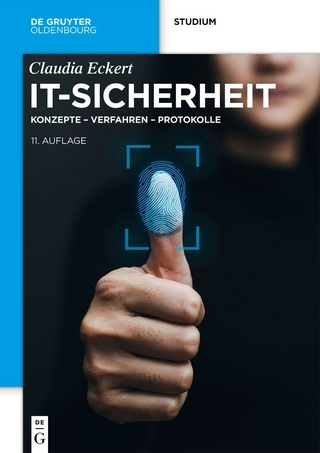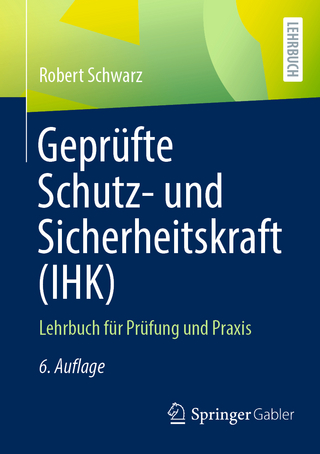
Hands-On Penetration Testing with Python
Packt Publishing Limited (Verlag)
978-1-78899-082-0 (ISBN)
Implement defensive techniques in your ecosystem successfully with Python
Key Features
Identify and expose vulnerabilities in your infrastructure with Python
Learn custom exploit development .
Make robust and powerful cybersecurity tools with Python
Book DescriptionWith the current technological and infrastructural shift, penetration testing is no longer a process-oriented activity. Modern-day penetration testing demands lots of automation and innovation; the only language that dominates all its peers is Python. Given the huge number of tools written in Python, and its popularity in the penetration testing space, this language has always been the first choice for penetration testers.
Hands-On Penetration Testing with Python walks you through advanced Python programming constructs. Once you are familiar with the core concepts, you’ll explore the advanced uses of Python in the domain of penetration testing and optimization. You’ll then move on to understanding how Python, data science, and the cybersecurity ecosystem communicate with one another. In the concluding chapters, you’ll study exploit development, reverse engineering, and cybersecurity use cases that can be automated with Python.
By the end of this book, you’ll have acquired adequate skills to leverage Python as a helpful tool to pentest and secure infrastructure, while also creating your own custom exploits.
What you will learn
Get to grips with Custom vulnerability scanner development
Familiarize yourself with web application scanning automation and exploit development
Walk through day-to-day cybersecurity scenarios that can be automated with Python
Discover enterprise-or organization-specific use cases and threat-hunting automation
Understand reverse engineering, fuzzing, buffer overflows , key-logger development, and exploit development for buffer overflows.
Understand web scraping in Python and use it for processing web responses
Explore Security Operations Centre (SOC) use cases
Get to understand Data Science, Python, and cybersecurity all under one hood
Who this book is forIf you are a security consultant , developer or a cyber security enthusiast with little or no knowledge of Python and want in-depth insight into how the pen-testing ecosystem and python combine to create offensive tools , exploits , automate cyber security use-cases and much more then this book is for you. Hands-On Penetration Testing with Python guides you through the advanced uses of Python for cybersecurity and pen-testing, helping you to better understand security loopholes within your infrastructure .
Furqan Khan is a security researcher who loves to innovate in Python, pentesting, ML, AI, and big data ecosystems. With a gold medal at both M.Tech and B.Tech, he started off as a research scientist at NITK, where he developed a web app scanner for the Ministry of IT (India). He then worked as a security researcher with Paladion Networks and Wipro Dubai exploring pentesting/exploitation space where he developed tools such as vulnerability scanner and a threat intelligence platform. Currently, he is working with Du-Telecom Dubai as a pentesting manager. He has published and co-authored white papers and journals with Springer and Elsevier, and has also presented his research and development work at international conferences, including CoCon.
Table of Contents
Introduction to Python
Building Python Scripts
Concept Handling
Advanced Python Modules
Vulnerability Scanner Python - Part 1
Vulnerability Scanner Python - Part 2
Machine Learning and Cyber Security
Automating Web Application Scanning - Part 1
Automated Web Application Scanning - Part 2
Building a Custom Crawler
Reverse-Engineering Linux Applications
Reverse Engineering Windows Applications
Exploit Development
Cyber Threat Intelligence
Other Wonders of Python
Assessments
| Erscheinungsdatum | 04.02.2019 |
|---|---|
| Verlagsort | Birmingham |
| Sprache | englisch |
| Maße | 75 x 93 mm |
| Themenwelt | Informatik ► Netzwerke ► Sicherheit / Firewall |
| Mathematik / Informatik ► Informatik ► Programmiersprachen / -werkzeuge | |
| ISBN-10 | 1-78899-082-X / 178899082X |
| ISBN-13 | 978-1-78899-082-0 / 9781788990820 |
| Zustand | Neuware |
| Haben Sie eine Frage zum Produkt? |
aus dem Bereich


